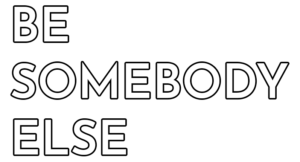
HESITATION / PANIC
Why does your childhood feel unreal? It may feel like a cartoon or a postcard version of something. It might seem too quick for anything that actually happened, or too slow. Maybe it feels doom-stricken like the Titanic when you actually recall nothing much bad happened. Or it could feel magnificent, like a glorious dream, the best childhood ever, populated by incomparable heroes even though there are things to suggest there were many things to worry about.
Best attempts and guesses
Why does your childhood feel unreal? A brief answer might read: because all you can do is give remembering your childhood your best shot. Nothing will be accurate in the way you wish it might. All of your recollections will be best attempts, guesses, made more or less real or wild by whoever or whatever’s surrounding you at the time you remember it – and when the event you are trying to recall took place.
Remembering is something that happens. It is ‘real’. Each recollection, the prompt for a memory to form, is a thing in itself, an organic process with sensory outcomes quite different from your first perceptions of an event, but related to it as you are to your ancestors. Think of all the people whose genes you share, a family tree, and you might get some idea of what starts to create a memory.
Let me suggest three ways of thinking about why your childhood feels unreal.
A disturbance
If you grew up around somebody whose behaviour was hard for you to understand you may have been left trying to make sense of something like a jigsaw puzzle with many crucial pieces missing, or a recording of a song where the words are sometimes blurred, or a print of a film with frames missing. Or maybe it is like watching a conversation in the street from behind a window in a high up room. Something happens and the people speaking act unusually.
Accounting for these kinds of experience involves your imagination and fires up your ability to draw on other experiences in order to describe the incomplete one. Doing this hones your poetic skills. As your life progresses you may find you have a gift for magnificent ways of telling the truth or inglorious ways of lying. The truth-tellers thrive on the feeling of conjuring up a splendid vision of life; the liars find ways of inoculating themselves against shame and subsist on those. Unfortunately the difference between these two kinds of adaptation might initially be extraordinarily slight.
Secrets
Secrecy creates its own secret: that secrecy can repeat without anybody demanding it.
Once there are secrets there’s a pressure never to reveal the truth, and in time the truth might be forgotten (which presumably is the point of the initial secrecy), leaving something like an incomplete sense of certainty. That feeling of ‘something fishy’. Attempts to recall a past freighted with secrets will lead to disharmony in the past and present. Nobody agrees about what happened, although the signs are that something did … so the here and now exists differently for different people. It can’t all be true. Agreeing to disagree can be a very risky business.
The mirror
Maybe you know the feeling of somebody getting the wrong idea about you. You look across at them and see somebody staring at you disapprovingly, as if you’ve done something bad to them. It doesn’t feel good. What did you do wrong?
If you are an adult maybe you can do something with this troubling thought. If you can’t it’s probably because someone way back in time looked on you in ways that didn’t reflect who you might be or who you could become. Children learn who they are from the people around them, telling them who they are, showing them what the world thinks of them. Or not. We begin in somebody else.
Everybody, every parent fails to give their child the best idea of who they could be. It’s impossible to follow every look, every movement, every sound a baby makes and help that child keep doing these in ways that make emotional sense to them, so that the world comes back to them uninterrupted by what you think of what they are doing.
Invitations to join in might be ignored or missed, gestures to something only that baby can understand, a world seen perhaps as if still dreamy, might be interpreted as wanting or looking for something else, something concrete. A parent might think that something a child does looks cute or funny and so that things gets asked to be repeated in front of family friends. A child becomes a performance for other people’s pleasure rather than their own without realising it.
All of these things are like blemishes in a mirror, or the weird distortions you get at a funfair hall of mirrors The images a child receives of itself are how a child gets to know itself. If a child receives messages that are distortions rooted in the minds of its parents or other folk these will remain in the character of that child like splinters.
Your childhood may feel unreal because as you learned about it as a child something else was going on: you were walking through a hall of mirrors. When as an adult your memories of your childhood form they will relate to your childhood but they will not be of your childhood. They will contain a mixture of your perceptions and messages or explanations you were and since have been given …not just by your parents but by the society you grew up in. Disturbances and secrets will play their part.
The whole memory thing
The whole memory thing is very hard to understand. Memories form at the point you try to remember something and when they do your mind will try its best to make what you remember thinkable. Sometimes it fails and memories remain as sensations or weird emotional or sensory impressions.
Feelings you can’t deny exist if you try to think about something from the past but nothing you’d be able to do something with that means something unless you do what Louise Bourgeois, Arthur Rimbaud, Miles Davis, and William Shakespeare did, or what Philemona Williamson, Hélène Cixous, and Nan Goldin do.
When it succeeds it will have excluded some things. Bad stuff that your mind decides is too much for you; maybe good stuff that it hasn’t noticed. It will flag up anything that you might feel poses a threat to you – and wow that can mean so many things. It won’t let you get close to stuff that overwhelmed you in the past (although unhelpfully, like a friend who keeps reminding you that something was awful, it also won’t let you just get on with life and forget it completely).
Then there’s the stuff that hangs around enigmatically. Jean Laplanche wrote about the enigmatic signifier. Speaking to psychotherapists at the university of Kent in 1990 he said:
Even when we think we are creating, we are always being worked by foreign messages
Although, rather importantly … he doesn’t write about the ‘enigmatic signifier’. Laplanche writes in French and uses French language words for this phrase … which he relates to Freud’s German language words for a ‘riddle’. He describes how things get discovered or lost in translation because the words of one language do not directly correspond to those of another.
Ideas of this kind are the ones that will help you understand something weird and wonderful about how memory functions as a translating process, moving from present to past in the impulse to recall an event, and then from past to present in decoding the secrets, disturbances and other weird stuff that you detect lurking there, can’t ignore and have to make sense of if you’re to say anything at all.
This is why some people have nothing to say about their pasts, or things to say that sound glib or unreal. The things that would sound real can’t find their way into being spoken. They are too much for the potential speaker to bear.
These are some of the reasons why your childhood might feel unreal. Don’t forget.

